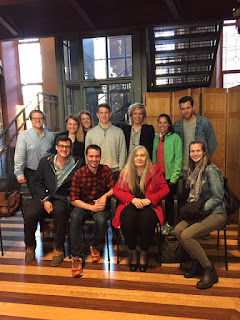Marilynne Robinson on Theology

Marilynne Robinson, novelist and essayist, is one of my literary heroes. She is witty, wise, and unabashedly Reformed. In April 2016, Robinson was in Princeton, NJ, giving a lecture as part of the University’s Comparative Literature lecture series. In her lecture, titled “Beauty and Grace,” Robinson made this elusive comment regarding her theological commitments: “I hold to theology because only theology embraces the true, tenable, and flawed as reality holds them.” Naturally, this statement shocked me, as I have never in my seven years of theological inquiry heard theology defined as such. Theology, as it has classically been construed, is systematic, ordered, and dogmatic. Mashing together the true and the flawed is a systematic theologian’s worst nightmare. Shocking as her statement may be, I think Robinson is on to something profoundly relevant for the current state of theology, and I’ve spent a lot of time thinking about its ramifications. What if Robinson is right? What if the...